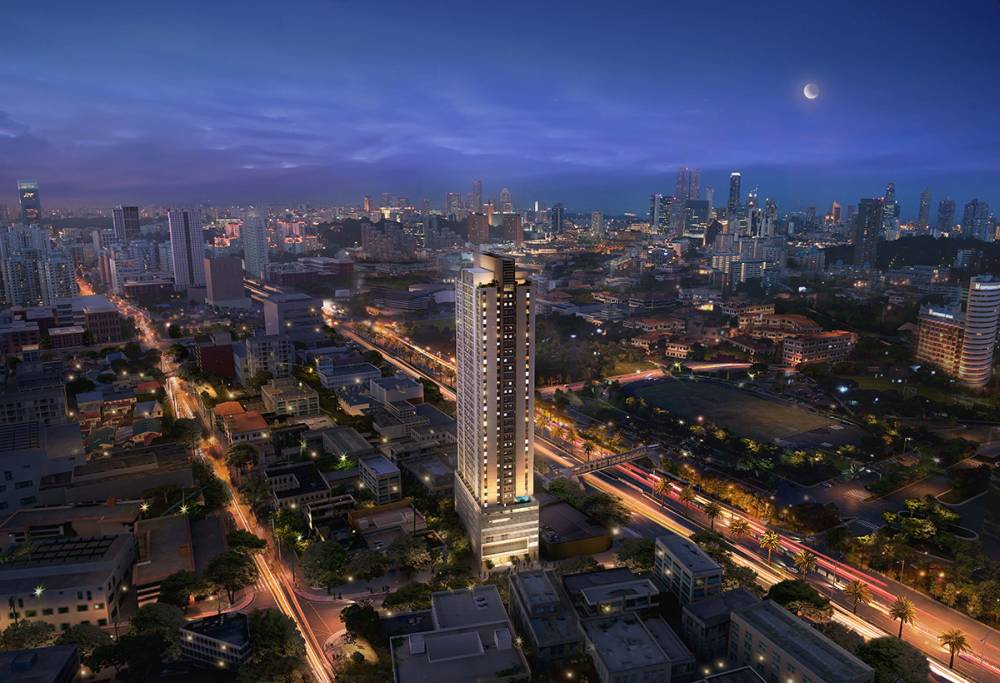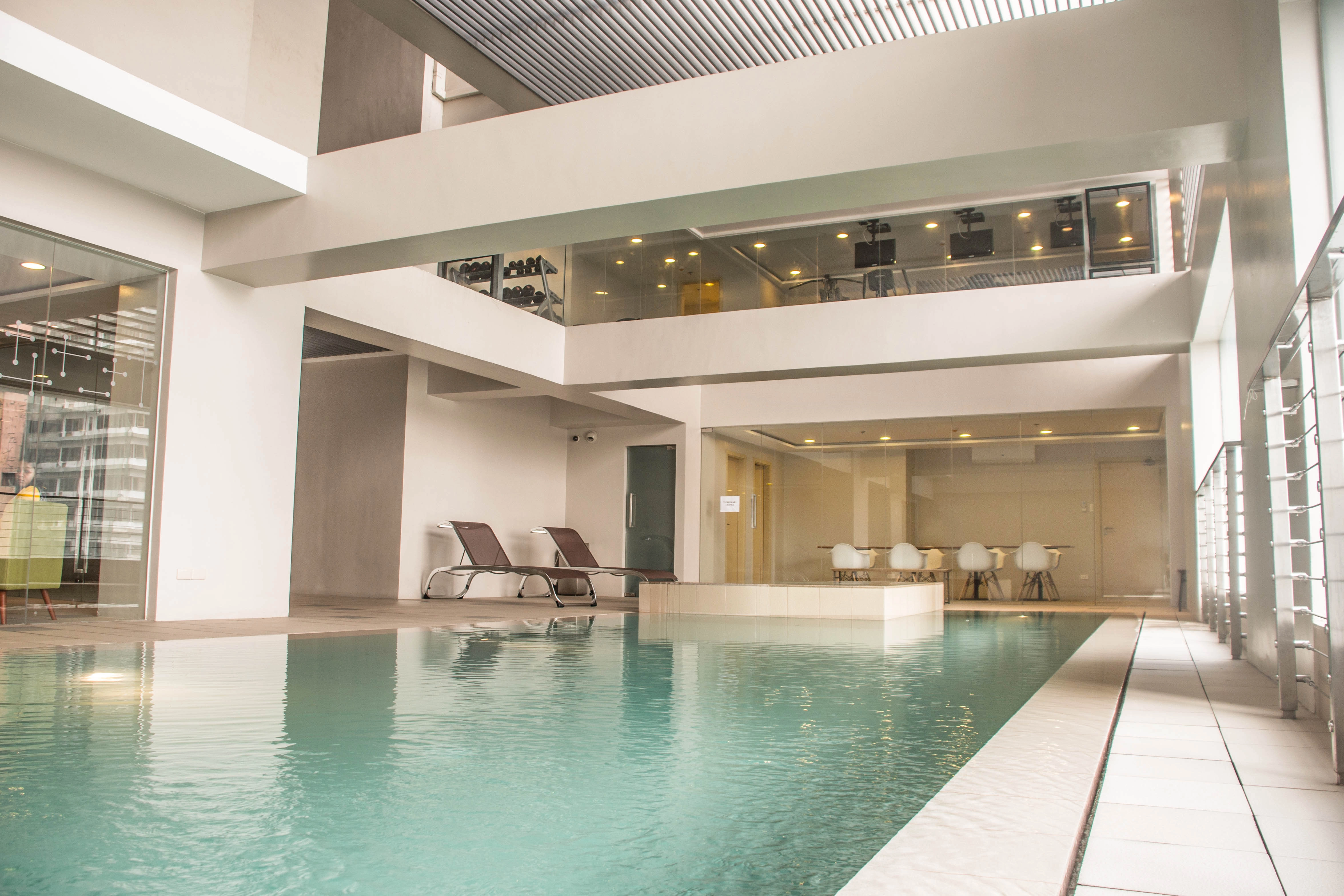BLOG
The Condo Building’s Lifespan and Other Things to Know
Posted September 6, 2021
Every prospective condominium (“condo”) buyer has questions they need answered before taking the plunge. Investing in a future home or a passive income generator is a big step, and many are often left wondering things like: How long does a condominium last? Is buying a condo a good investment in the Philippines? What are the benefits?
 Artist's perspective of Torre Lorenzo Loyola's building facade.
Artist's perspective of Torre Lorenzo Loyola's building facade.
Today, let’s tackle the first item on that list. Condominiums are like any other building in that their lifetimes are based on how well they’re taken care of. In this case however, it is not only your space that needs upkeep in order for the property to remain in shape to last several generations. Condo buildings require repair and maintenance, both inside and out of your unit.
Knowing this, here are three questions you need to ask yourself (and your broker!) before handing over that lifechanging down payment.
1. What is the Fifty-Year Period?
REPUBLIC ACT No. 4726 ‘The Condominium Act’ has been a topic in the real estate industry with its rumored provision that 50-year-old condominiums are to be deemed uninhabitable and thus destroyed after their fiftieth year. This false interpretation could cause investors and condo owners alike to lose their stake in the condo corporation and subsequently force them to sell their investment. Or, at least, it would if this rumor were accurate.
The truth is that ‘The Condominium Act’ deals more in the deciding factors of when a condo corporation, not the condo developer, is allowed to sell the condo as a whole or dissolve it entirely. The condo corporation is made up of stakeholders, including individuals or businesses, who own a unit in any given condominium.
While this may seem intimidating to the singular unit owner, they can rest assured that the age of the condo is not the only deciding factor in the equation. A condo corporation will be allowed to proceed with the sale of the condo building and its land if all three factors below are met:
1) The building is more than 50 years of age;
2) The building is proven to be obsolete and uneconomical; and
3) A majority of the unit owners are against the repair, restoration, or modernization of the project.
Thus, it’s important to look at each project’s general state when viewing your options. Certain projects, when not cared for properly, may end up seeming older than they are without adequate building care. At the same time, well-maintained but older developments may prove more premium choices in comparison. As long as the building is not proven to be obsolete and uneconomical, the fifty-year period should not be cause for much concern. Thus, a building’s upkeep becomes that much more important.
2. How well does the developer of the condo care for their buildings?
Many times, a pre-selling project will have a history of other projects behind it. Developers who have been in the real estate industry for a while more often than not have a portfolio of their buildings to look back on and learn from. This forms a track record of their own style of development. For the prospective condo buyer, this portfolio becomes invaluable for determining if a pre-selling project has a bright future ahead of it, or if a specific Ready for Occupancy (RFO) building is right for you.
Ask your broker about the types of materials used in your unit and the building’s construction. Are they of high quality, meant to last for years into the future? Ask for photos such as past projects and unit inclusions, things that will say quite a lot about the quality of the building you’re looking at. Are the buildings well-maintained? Are their hallways clean, their reception efficient, and their safety facilities in tip-top shape? Are the amenities well taken care of? What do current owners of the units of the building say about the scheduled maintenance and repair of common areas?
The answers to these questions, although not ensuring results, will at least be strong indicators of quality. Deducing whether the condominium unit you have your eye on will have well-maintained common areas in the future becomes easier with these simple points.
The upkeep of these common areas and resident care is generally left to a team dedicated to the building’s maintenance. This team, known as the property management, is in charge of reception, cleaning and disinfection, and general servicing of the different parts of a condominium. The more efficient the property management team is, the more likely it will be that the building will retain quality standards of health, safety, and resident care.
 Actual Photo of 2Torre Lorenzo pool area.
Actual Photo of 2Torre Lorenzo pool area.
While most, if not all, condominiums have hired staff to oversee property management, the approaches can vary. For instance, some developers does not have a property management thus, it is outsourced to different companies, endorsing the responsibility to a third party. Other developers offer their residents the premium addition of a dedicated property management group run by the company itself or one of its subsidiaries, for a more hands-on approach. Regardless of their methods for choosing how their team is put together, the results often speak for themselves in a developer’s different projects. How you enjoy your unit and for how long is directly tied to the welfare of the building it’s in, making property management a key factor in deciding which condominium to buy and from which developer.
3. Is the unit you’re buying in good shape?
Once you’ve settled on a building you’re confident will be maintained throughout your lifetime ownership, it’s time to take a look at your own personal corner of the development – your unit.
If you’re buying from a pre-selling project, the closest you can get to seeing a unit yourself would be the showroom. Most developments have showrooms to display the dimensions and makeup of a unit, as well as how it can be decorated to suit your individual needs. Some projects, when close to being ready for occupancy, will also allow site visits to see the different units while the building is still under construction. Either way, while it isn’t the same as seeing your unit yourself, these options are good for gauging the amount of space you have to work with and how certain furniture and fixtures might be laid out in the future to optimize your new home.
When looking at an RFO project on the other hand, you’re offered the advantage of cherry picking your unit from all the options available in the building. A site visit would be ideal, as this will allow you to inspect your future unit to see if it has been taken care of since the building was completed. Purchasing a unit from a previous owner will necessitate an inspection, whether in person or through a video call with your broker. The better a unit was taken care of, the longer its lifespan will be. Purchasing a unit with no previous owner will mean its maintenance will be dependent on the developer currently selling you the unit. And here, yet again, we see the importance of choosing a developer that emphasizes quality with every purchase.
Conclusion
The decision to purchase a condominium unit is a weighty one, filled with many micro-choices made before it. In this day and age, picking the right unit may well be a lifetime investment, and thus picking the right developer is every bit as important. While you maintain your personal space in the building, the developer and property management team will be in charge of caring for the wellbeing of the common areas built around it. The lifetime of your condominium is thus determined not just by how well you take care of your unit, but also how well your developer takes care of you. With just enough attention and care, and if you chose a building with quality materials and fixtures, you’ll be enjoying your unit for years to come.
Torre Lorenzo Development Corporation (TLDC) has been a key player in the real estate industry since its first project, 1Torre Lorenzo, was launched in the year 2000. More than two decades later, TLDC prides itself in having maintained and managed its pioneer project and a number of projects built after it. The Torre Lorenzo Property Management Corporation (TLPMC) was formed to reassure unit owners that their investment in the properties will be cared for throughout their years with TLDC. TLPMC includes a dedicated and well-trained staff ready to keep the building amenities and common areas in order, while also providing assistance to unit residents and owners. We at Torre Lorenzo understand the need to take good care of you, your properties, and your investments.
Torre Lorenzo Development Corporation (TLDC) is a real estate developer engaged in building communities that pursues niche markets and untapped demographic segments. Equipped with an intuitive understanding about the markets they serve, the visionaries behind TLDC anticipate the needs of the emerging affluent communities and develop residential and leisure properties customized to address every requirement to upgrade their quality of life. Among Torre Lorenzo’s projects are: 3Torre Lorenzo, Dusit Thani Residence Davao, Tierra Lorenzo Lipa, Torre Lorenzo Loyola, Torre Lorenzo Malate, and Torre Lorenzo Sur.
For more information:
Telephone: +63 553-2031 and +63 868-6773 torreinquiry@torrelorenzo.com
Official website: www.torrelorenzo.com


